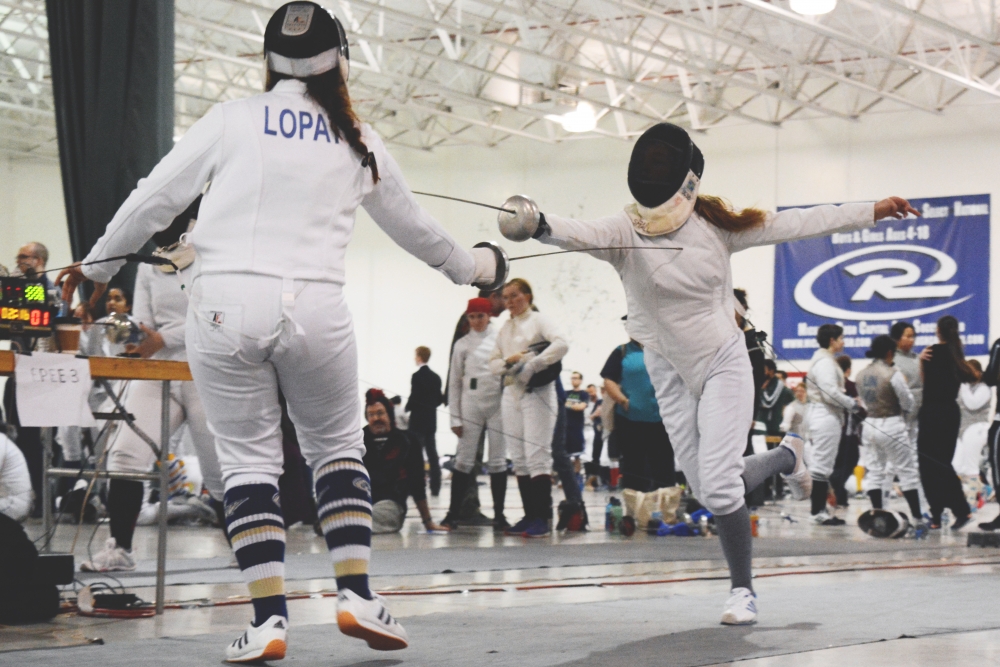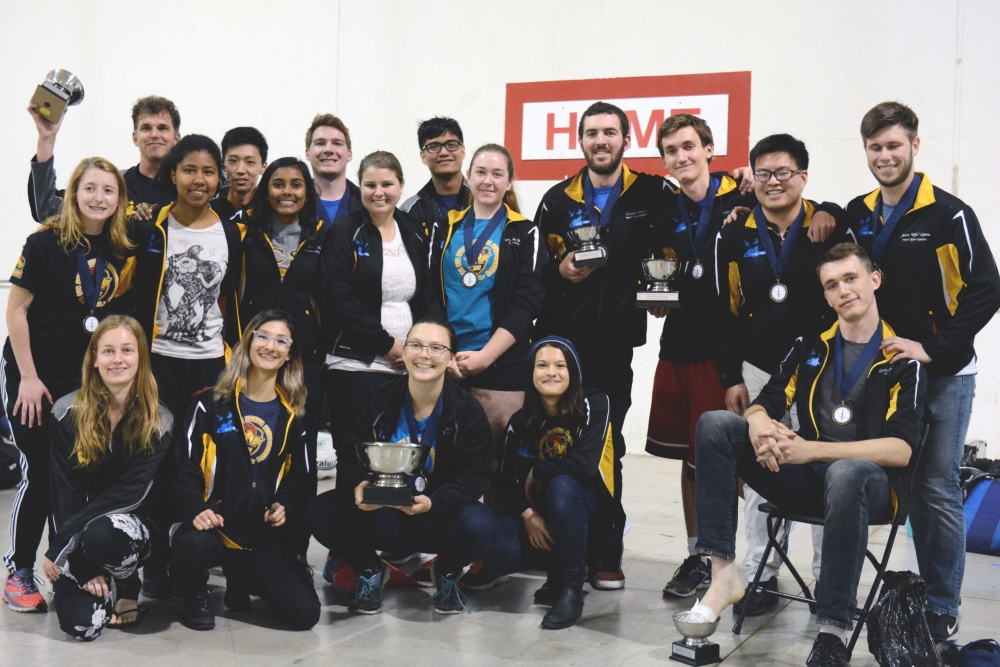Allez!

Fencing is a sport of split-second strategy, bursts of energy and finely honed skill and speed — all while wielding a rapier-style sword. And UC Santa Barbara fencing coach Tim Robinson has been recognized for his work imbuing his students with just that physical and mental agility.
Robinson has been named 2017 Coach of the Year by the U.S. Fencing Coaches Association for having “steadily elevated the competitive level of the UCSB fencing team.” He was presented with the Deladrier Sword in recognition of his achievement.
“I am honored, humbled, and inspired to do even more,” said Robinson, who has been the UCSB Fencing Club head coach since 2005. “And I am very proud that the UCSB students have been recognized for their extremely hard work this past season — and for the past few seasons.”
This year, for the first time, both the UCSB men’s and women’s fencing teams took first place in the Southern California Intercollegiate Fencing Conference. While the men’s team had accomplished this once before, in 1992, this was a first for the women’s team. The teams then went on to the U.S. Association of Collegiate Fencing Clubs’ National Championships, where they earned a combined 3rd place finish.
Robinson began his fencing career as a UCSB student in 1995. Fencing was something he always wanted to do, he said. “When I saw there was a club here, I showed up the first day of the quarter, took my first lesson from a couple of students, and never looked back.” Robinson is also the founder and head coach of the Santa Barbara-based Presidio Fencing Club, and holds the rank of Prevot d’Armes with the International Academy of Arms.
As coach, he aims to share with students his love for fencing — the speed, the technical elements, the training — while helping them build their skill, stamina and mental acuity for the physically and mentally demanding sport.
“I also try to get my students to realize that fencing is really about problem solving,” he said. “What does it take to score a point on your opponents? Fencers have to stay calm and focused in order to see the solutions when they present themselves; and fencers have to be in control of their actions in order to create opportunities for themselves.” The real fun begins when fencers start developing strategies to trap, control and crush their opponents, he added, but it’s also a valuable learning experience when the tables get turned.
“Fencing is always a learning experience — winning or losing,” he said.
Not all wins are on the strip for Robinson. Seeing his fencers progress in the sport, while gaining confidence and discipline is one of his favorite aspects of his work.
“I get the privilege of watching them transform into athletes,” he said. “The ones who really want it — who want to excel at this weird and unusual sport of ours — first develop a sense of time management to make room in their schedules for drills and sparring. And then they realize they need to train, and so they start also hitting the weight room. Next thing you know, they’re pushing more weight and moving faster than they ever thought possible. They start realizing they actually enjoy competitions, and they start to seek them out. If the competition is good, then flying across the country becomes less and less of an obstacle. And suddenly, they’re athletes.
“I have one student who just graduated last June,” he continued. “Four years ago, he struggled to make it through a full practice. Now, he is only considering jobs near major fencing hubs, all with the goal of making an Olympic team.”
The Deladrier Sword is named for the first president of the U.S. Fencing Coaches Association, who was also a successful coach at the U.S. Naval Academy. The award is presented to a fencing coach whose students, in one competitive season, have achieved particularly noteworthy success, taking into account the training conditions (either favorable or unfavorable) under which the coach worked. The successful students must be primarily, if not entirely, developed by the awardee, and their achievements determine the coach’s eligibility for the trophy.





